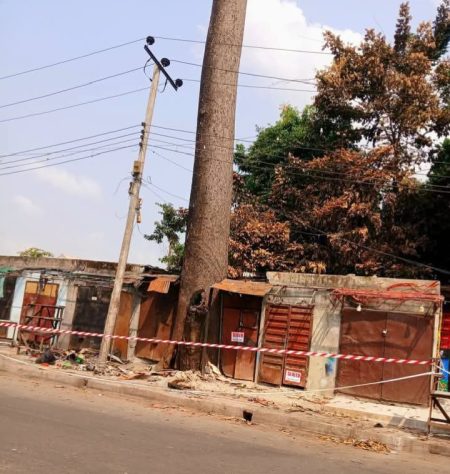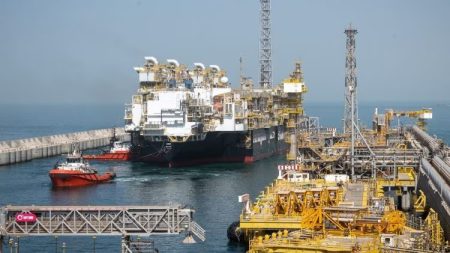Transdniestria, a mainly Russian-speaking breakaway region along the Ukrainian border, had received Russian gas via Ukraine for decades, using it to generate electricity also sold to the rest of Moldova, providing 80% of the country’s power.
But that gas was cut off along with flows to Central and Eastern Europe that stopped on New Year’s Day, after Kyiv refused to extend a transit deal that had persisted through nearly three years of all-out war between Russia and Ukraine.
The Transdniestrian government said on Telegram that a total of 122 settlements had lost gas supplies as of Monday morning, and only small amounts were being supplied to some apartments for cooking. Authorities ordered schools not to reopen after the winter holidays, with at least 131 schools and 147 kindergartens left without heat.
“There is not a single person in Transdniestria who is guilty of this situation – it’s all an external factor,” the president in the region’s administration, Vadim Krasnoselsky, said on a televised statement.
Gas piped via Ukraine has long been the main way Russia supported the separatist region, which broke free of control of Moldova’s central government in a brief war in 1992 and still hosts 1,500 Russian soldiers.
Moldova summoned a Russian diplomat on Monday and accused Moscow of falsely blaming it for the Transdniestria crisis, which it said Moscow was artificially stoking to undermine its government before parliamentary elections this year.
Moldova, which has a pro-European government that seeks membership in the European Union, has alternated between pro-Western and pro-Russian governments since it gained independence during the 1991 break-up of the Soviet Union.
Moldovan Prime Minister Dorin Recean told a briefing of reporters that disruptions of water supply in Transdniestria had begun on Monday.
“The meaning of all of this is for Russia to create instability in the region but also very importantly to influence the results of the parliamentary elections in Moldova… They want to achieve a pro-Russian government…,” Recean said.
Russia’s foreign ministry said it was following the deteriorating situation in Transdniestria with alarm, and accused Moldova and the West of artificially creating the crisis and falsely blaming Moscow for it.
Since Russian gas was halted with the new year, Moldova has met its power needs by importing about 60% of its energy requirement from neighbouring Romania. It says it has offered to assist the separatists, but that the offer was rejected.
Krasnoselsky has called reports of such an aid offer “lies” and said Moldova’s goal was the “strangulation” of the enclave.
“There have been no offers of assistance from Moldova or other states,” he said. He has urged residents to use firewood.
Authorities in the region said in a statement late on Monday that their regime of rolling power cuts would be doubled on Tuesday, happening twice a day for a period of four hours.
The Moldovan government blames the energy crisis on Russian gas export giant Gazprom, which it said refused to supply contracted gas to Moldova via an alternative route.
Gazprom said it would suspend exports to Moldova on Jan. 1 because of unpaid Moldovan debts Moscow says total $709 million. Moldova disputes that and puts the figure at $8.6 million.
Reporting by Pavel Polityuk and Tom Balmforth; editing by Peter Graff and Mark Heinrich – Reuters




